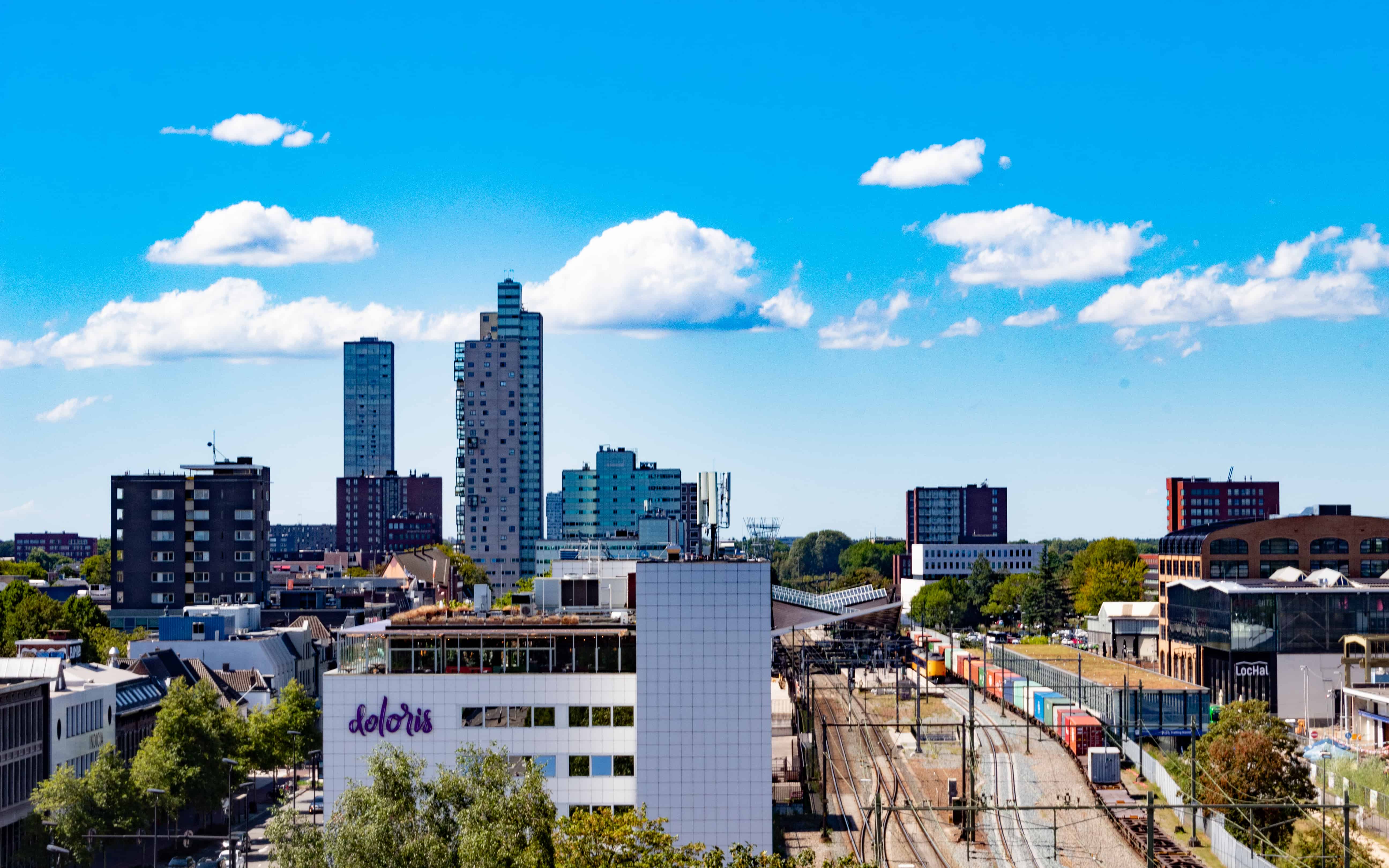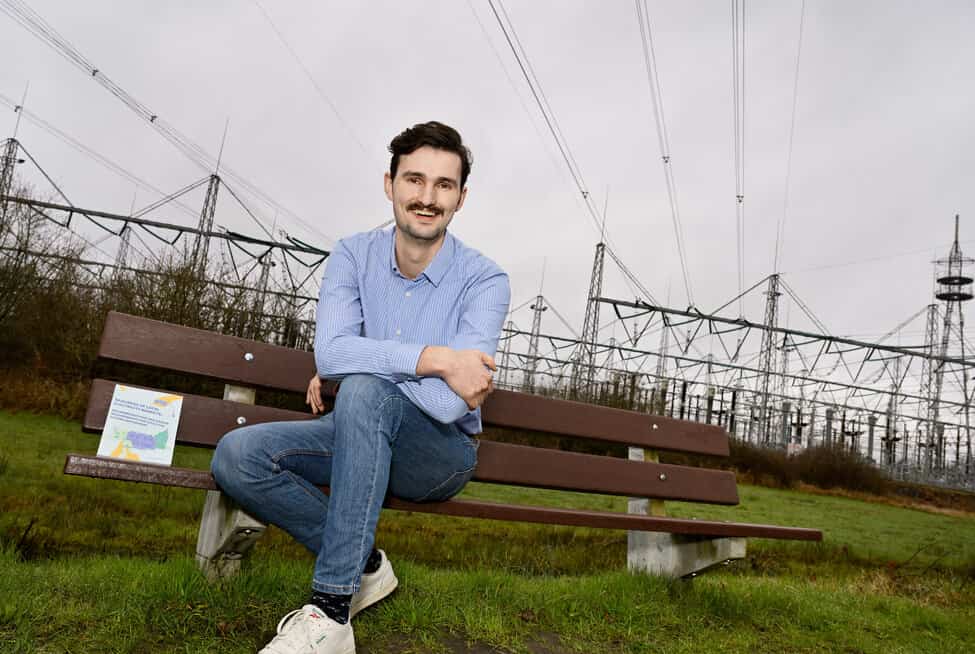
“It’s brimming with opportunities here, much more than we can handle and that’s great,” Marc Verbiest exclaims. He has been posted to the Dutch Consulate in Munich as a representative of the province of North Brabant in the Netherlands. There, the representative links Brabant companies and knowledge institutions to those from the German federal states of Bavaria and Baden-Württemberg.
With some 30 million inhabitants, the southern German market is several times larger than that of North Brabant. “You immediately attract attention in Germany when you come up with solutions to serious problems, such as the energy transition, new forms of sustainable mobility, or within the healthcare sector. Also during this current corona crisis.”
Planned long-term measures
For example, Verbiest was asked to look for opportunities in the German market on behalf of companies in Brabant that want to offer new ventilation equipment. Although these sorts of requests tend to be ad hoc initiatives. Much of the representative’s work is planned over a long period of time in order to build solid contacts and networks, he explains.
In Germany, personal contacts are especially important. “Telephone calls don’t work as well as they should. You really have to be there and get to know the right people.” That is why the province chose to have a representative in Munich to smooth the way for German companies to meet Dutch ones.
Verbiest worked for Siemens in Germany for many years before joining the province of North Brabant. In doing so, he had already built up a network when he started this job four years ago. His network grew enormously when he was posted to Munich, Verbiest adds. “The bigger the network, the more insight you have into where you need to be, and the more chance you have of finding a match.”
Setting out proposals down to the last detail
“Relationship management,” is the leitmotif of Verbiest’s work as he calls it. He hears what’s going on in the many conversations he has. “What you see, for example, is that some companies from Baden-Württemberg have been making a wonderful and solid product for years, which makes them the market leader within a small-sized market. Those companies now feel threatened, because a Chinese company can reproduce that very perfect product for a fraction of the price.”
“South German companies are high-quality high-tech companies. Brabant companies tend to be that too. That is why we know that it is necessary to put things in writing and to work out proposals in detail.” Where the difference lies is in the size. A small and medium-sized business in the south of Germany can easily grow to around 1,000 employees. Whereas in the Netherlands and specifically in Brabant it is a matter of a few dozen to hundreds. “Smaller companies adapt more quickly. German companies can take advantage of this in the competition with China.”
Because the Netherlands is so small, the Dutch have traditionally been used to cooperating, Verbiest goes on to say. Brabant-based open innovation campuses such as Brainport Industries Campus and Pivot Park life sciences campus show how far this collaboration goes. This is where companies and knowledge institutions work together on solutions for the future. “These are fine examples of our culture of innovation. We know where to find each other very quickly. If something needs to be done, we will go the extra mile to get it done together.”
Brabant innovation missions
Together with the Dutch Consulate, the Brabant Development Agency (BOM), and the Netherlands Enterprise Agency (RVO), the province of North Brabant organizes trade missions. Or innovation missions as the province likes to call them. The province representative frequently visits relevant trade fairs and network meetings together with companies and knowledge institutions from Brabant as well. This often provides an opportunity to gain an inside track into companies and discussions then follow. If a Brabant company is introduced to a German company, the role of the Brabant representative ends there. The companies handle the business side of things. “It is up to a company to decide for themselves whether it is a genuine opportunity or if it presents too much of a risk.”
“Look, you don’t have to help multinationals like Philips, NXP, ASML, and VDL. They do it on their own.” The Dutch Chamber of Commerce, the Brabant Development Company (BOM), and the province of Noord-Brabant offer opportunities for small and medium-sized businesses in particular with expanding their market in South Germany. As the representative, Verbiest is the ‘face’ that has been put forward. The province and organizations such as the BOM determine which markets should be focused on, who are the most interesting parties, and how to get in touch with the right people.
Automobile industry and integrated photonics
“Here in Germany, for example, the automobile industry is huge. It’s facing a major transition. Because of the way they go about innovation, Brabant companies can provide added value in this respect. For instance, with the new ‘ integrated photonics ‘ technology. Chips that do not run on electricity, but on light instead. This makes them much smaller, cheaper, and more reliable,” says Giuseppe Coppola, a business strategist for the Dutch PhotonDelta network.
By the end of 2018, the Dutch government, companies, and knowledge institutions together invested €236 million in PhotonDelta with the aim of accelerating the development of integrated photonics. Coppola calls the network a ‘one-stop-shop.’ “We discuss with a customer what integrated photonics can do, and then we bring the parties together to make it happen.” Brabant leads the way in the development of integrated photonics together with Eindhoven University of Technology and companies such as SMART Photonics and Effects Photonics.
These tiny photonic chips can also be useful in a moving autonomous car, such as identifying and exploring the surroundings, says Verbiest. Because the chips transmit information with light, they are much faster than chips that run on electricity. A moving autonomous car must be able to react quickly to the situation on the road. “Using photonic chips you are able to build a system that has the speed required. Integrated photonics offers great opportunities for the German automobile industry.”

Fast diagnostics and monitoring
Coppola also sees opportunities within the healthcare sector: “Healthcare is under pressure. Costs are constantly rising. And with the current corona crisis, there is perhaps an even more urgent need for prevention, fast diagnostics, and remote monitoring. These chips make it possible to build far smaller, cheaper, and yet highly accurate medical equipment. Such as those for eye examinations and disease diagnosis. A general practitioner would then be able to carry out initial examinations.”
Germany is an important market for PhotonDelta. “We are committed to operating on a global scale. Given that this is a new technology that has yet to prove itself, it is important to have plenty of face-to-face conversations and discussions about its capabilities.” That’s why the network has chosen Germany, “it is close by and our cultures are very much alike.”
Coppola builds his own contacts in Germany, but Verbiest also opens doors for him. Coppola: “The representative works as a kind of guide. If you have an idea and want to visit a company, they then use their local network to try to initiate contact. If that works out, I’ll come in and go into the details in more depth.”Coppola arranged together with Verbiest a workshop on integrated photonics, which he and the German Fraunhofer HHI research institute will host during the ‘Photonics Days’ event in Berlin at the end of October. Coppola is also one of the speakers at the MedtecLIVE summit in Nuremberg towards the end of June, (or later if it gets postponed because of the coronavirus).
Verbiest: “Our economies are a perfect match. We should take full advantage of that. Because there is so much potential business here when it comes to working together on the solutions of the future.”







